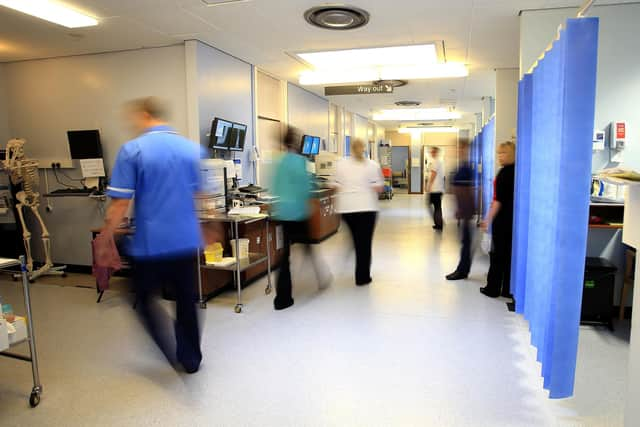Rise in frontline NHS workers seeking help for suicidal thoughts
Data from the Laura Hyde Foundation shows that 946 workers contacted the charity in the first six months of this year for support over suicidal thoughts, up on the 556 who did so in the same period the year before.
The charity, which was set up by the family of nurse Laura Hyde, who took her own life in 2016, offers help to medical and emergency service workers, including nurses, doctors, paramedics, midwives, police officers and firefighters.
Advertisement
Hide AdAdvertisement
Hide AdIt has launched a new “Feelings” video to raise awareness of mental health issues among frontline workers, as the charity warned people could face even more severe issues due to the cost-of-living crisis.


Liam Barnes, chairman of the charity, said: “These deeply alarming figures expose what we have been growing increasingly concerned about at the Laura Hyde Foundation over recent months.
“And that’s the fact that our healthcare and emergency services are still facing a pandemic. This time, however, it isn’t Covid-19. It is the state of mental health and wellbeing of the workforce.
“We are yet to see the true effects of burnout, PTSD and many more conditions as a result of this testing time.
“Plus we now have a cost-of-living crisis, which will only add to the burden many of our frontline workers will face.
“That’s why it is critically important that the new Prime Minister and her new health secretary put providing mental health support to emergency workers at the very top of their agenda.
“Sadly, the topic of mental health specifically for healthcare workers remains riddled with stigma. This simply has to end.”
The most common groups contacting the charity for help so far in 2022 are nurses, midwives, medical students and hospital doctors.
Most of these (77 per cent) are aged 40 or under.
Advertisement
Hide AdAdvertisement
Hide AdGemma Clay, 38, nurse and clinical doctorate fellow at the University Hospitals Sussex NHS Foundation Trust, said: “These findings underline why all organisations across the emergency services must step up and do more to ensure they are supporting frontline workers.
“When I talk to staff, many of them tell me that the cost-of-living crisis is having a big impact on their mental health.
“Large numbers are also suffering from PTSD linked to the pandemic and burnout due to the current pressures that exist within the service.
“People experiencing suicidal thoughts often struggle to be heard.
"This could be due to myths surrounding suicide, such as the idea that talking to a suicidal person can make them even more suicidal.
“Another myth is that people who talk about suicide are attention seeking and difficult to manage, when in fact even though bringing up suicide can be very difficult, it suggests that the person wants and needs help.
“My main advice to anyone feeling suicidal is to talk to someone. Don’t stay silent, as it is hard going through this alone.”